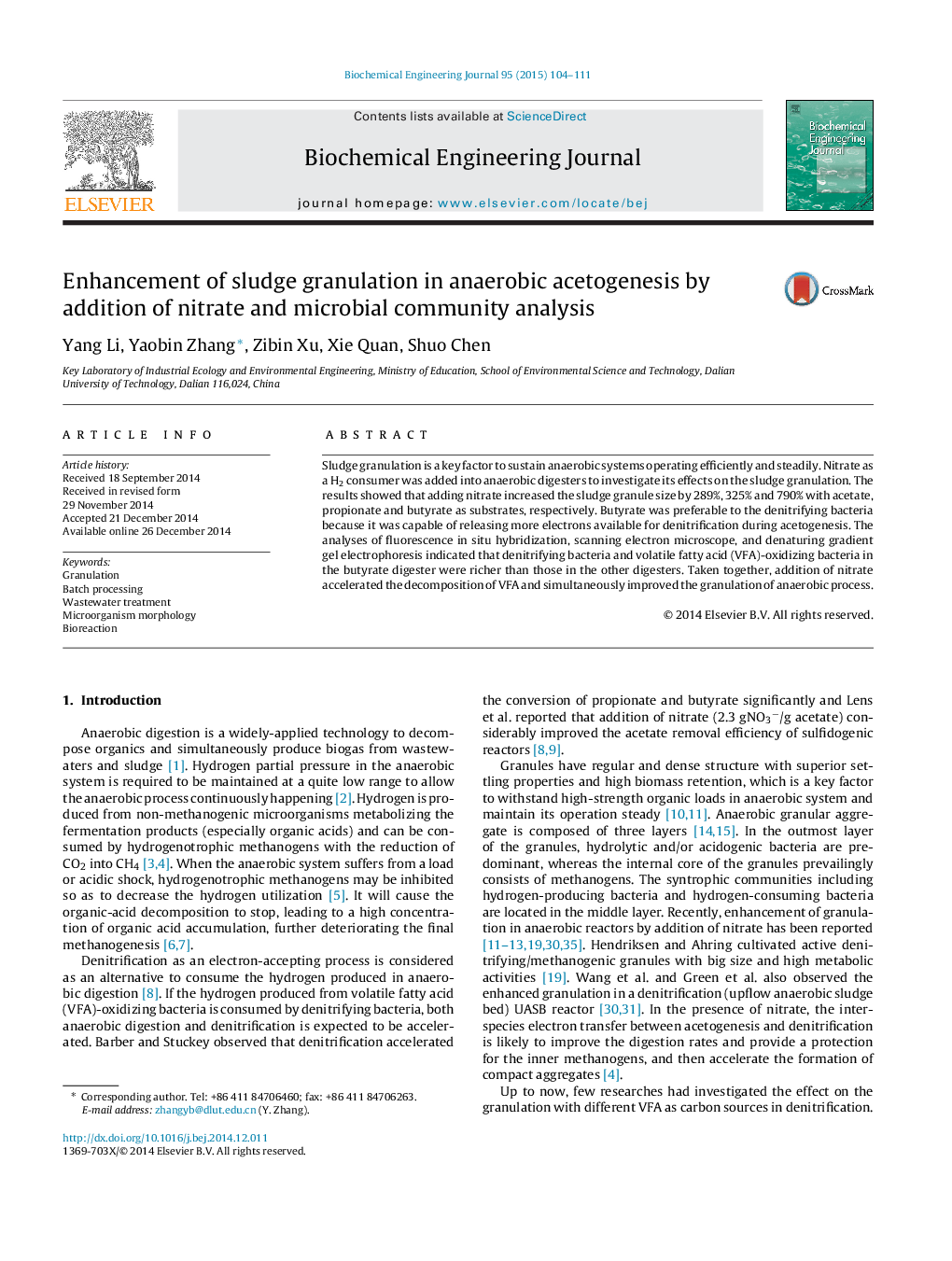| Article ID | Journal | Published Year | Pages | File Type |
|---|---|---|---|---|
| 2956 | Biochemical Engineering Journal | 2015 | 8 Pages |
•H2 produced in anaerobic process acted as electron donor for denitrification.•Adding nitrate could accelerate the sludge granulation in acetogenesis.•Butyrate was optimum carbon source for sludge granulation and denitrification.•Microbial communities in butyrate digester presented the most active state.
Sludge granulation is a key factor to sustain anaerobic systems operating efficiently and steadily. Nitrate as a H2 consumer was added into anaerobic digesters to investigate its effects on the sludge granulation. The results showed that adding nitrate increased the sludge granule size by 289%, 325% and 790% with acetate, propionate and butyrate as substrates, respectively. Butyrate was preferable to the denitrifying bacteria because it was capable of releasing more electrons available for denitrification during acetogenesis. The analyses of fluorescence in situ hybridization, scanning electron microscope, and denaturing gradient gel electrophoresis indicated that denitrifying bacteria and volatile fatty acid (VFA)-oxidizing bacteria in the butyrate digester were richer than those in the other digesters. Taken together, addition of nitrate accelerated the decomposition of VFA and simultaneously improved the granulation of anaerobic process.
